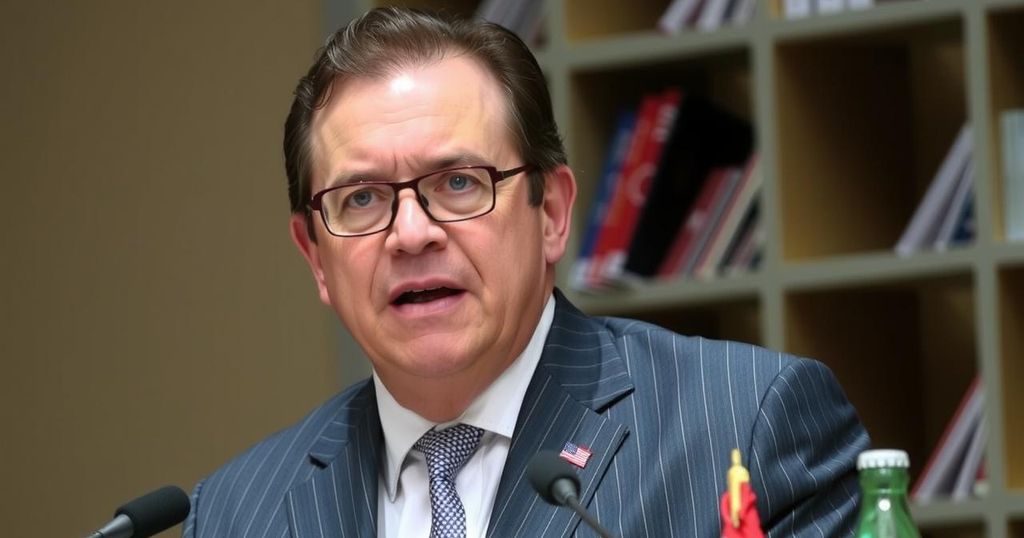Politics
AEROLINEAS ARGENTINA, AEROLÍNEAS ARGENTINAS, ARGENTINA, BRAZIL, BUENOS AIRES, CAPUTO, CHILEAN GOVERNMENT, CORRUPTION, CUBA, DEMOCRACY, FOREIGN MINISTRY, HEZBOLLAH, JAVIER MILEI, LUIS CAPUTO, NATIONAL SECURITY, NORTH AMERICA, PATRICIA BULLRICH, SOUTH AMERICA, TRADE RELATIONS, VENEZUELA
Fatima Khan
0 Comments
Chile Protests Argentine Minister’s ‘Communist’ Remarks on Boric’s Leadership
Chile formally protested Argentina’s Economy Minister Caputo calling President Boric a “Communist” in a radio interview. Caputo’s comments reflect broader tensions and differing political ideologies between the two nations, particularly following Javier Milei’s presidency in Argentina and its implications for regional politics.
The Chilean government, under President Gabriel Boric Font, has lodged a formal protest against statements made by Argentine Economy Minister Luis Toto Caputo, in which he referred to President Boric as a “Communist” responsible for leading Chile to decline. During a radio interview, Caputo emphasized that while Argentina under Javier Milei’s administration had successfully countered leftist governance, Chile now suffers under poor political leadership. In response, Chile’s Foreign Ministry condemned these remarks as “inappropriate and inaccurate,” formally delivering a protest note to the Argentine Ambassador in Santiago. Caputo further commented on Argentina’s internal politics, criticizing Governor Axel Kicillof’s interest in acquiring Aerolíneas Argentinas, claiming it to be a poor decision reflective of his prior ministerial failures. This exchange highlights the ongoing tensions between Chile and Argentina, exacerbated by recent political developments in both nations.
The recent diplomatic spat between Chile and Argentina stems from a broader context of strained relations following Javier Milei’s election as Argentine President. Accusations regarding political ideologies and governance capabilities have been a staple of political discourse in the region. Caputo’s remarks illuminate the ideological divides that characterize Latin American politics, particularly concerning leftist movements. Chile’s historical struggle against poverty and its political choices are contrasted starkly against Argentina’s emerging priorities under new leadership, suggesting a deeper cultural and political rivalry.
The exchange between the Chilean government and Argentina’s Economy Minister underscores significant tensions between the two nations, largely stemming from differing political ideologies and historical grievances. As Chile navigates its current political environment under President Boric, it remains critical of external perceptions and internal criticisms. This incident serves as a reminder of the complexities within Latin American politics, where ideological battles often manifest in strained diplomatic relations and public discourse.
Original Source: en.mercopress.com




Post Comment